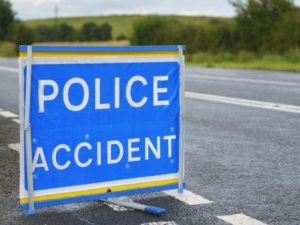Action on work-related road risk could bring “major benefits for society”
More work is needed on combating work-related road risk to help cut down on the number of accidental deaths and injuries in the UK.
So says RoSPA as it calls for more work on collecting work-related road accident statistics and help for employers to manage occupational road risk.
The recommendations have been published as part of the organisation’s new national strategy, which seeks to address the rising number of accidental deaths in England. Developed by a wide range of partners including Public Health England and the Royal College of Emergency Medicine, the strategy acknowledges that there have been significant reductions in accidental death and injury on the roads and that road and workplace accidents are also investigated systematically, enabling lessons to be learned for future prevention.
However, it also points out that while work-related road accidents are not included in occupational injury figures or given prominence in general road accident figures, it is estimated that about a third of road accidents involve someone who is at work at the time, meaning that action on work-related road risk could bring major benefits for society as a whole, and also employers specifically – for autonomous vehicles too.
To make a lasting impact on road casualty figures, employers need help to understand their legal duty to manage the risks their staff face and create when using the road for work, and to find ways to reduce at-work driving, the report says. It also highlights that the Department for Transport has already pledged to encourage better occupational road safety, fleet management and procurement, including the evaluation of existing safer-driving-for-work schemes, and says robust data are essential in order to fully develop an understanding of the level of work-related road accidents, and thus to target them effectively. It’s also hoped that improvements to how ‘purpose of journey’ information is collected on police STATS19 forms will give increased visibility to the problem.
RoSPA’s national strategy also says the needs of vulnerable road users including pedestrians, cyclists, children and older people must become a priority in local planning processes if the level of road deaths and serious injuries is to be addressed.
Errol Taylor, RoSPA’s chief executive, said: “Other areas of accident prevention have much to learn from road safety, which has had nationally-led strategic approaches to injury reduction. In recent years, however, the decline in road deaths and injuries that we saw over previous decades has stagnated, meaning we need to also take new and more effective approaches to accident prevention on the roads.”













